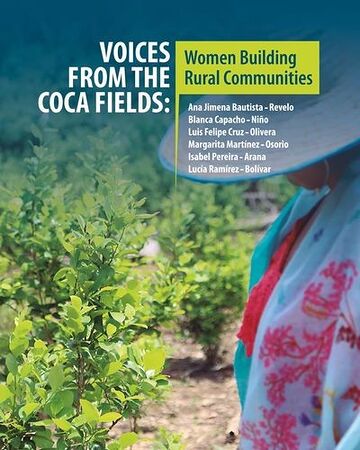Isabel Pereira Arana
Autor
Es politóloga de la Universidad de los Andes de Colombia (2008), y Magister en Estudios de Desarrollo, con énfasis en conflicto y construcción de paz del Instituto de Altos Estudios Internacionales y de Desarrollo de Suiza – IHEID (2015). Su interés se centra en el impacto de las políticas de drogas en el desarrollo rural, la salud pública y los conflictos armados. Actualmente se desempeña como coordinadora de investigaciones de la línea de Política de Drogas del Centro de Estudios de Derecho, Justicia y Sociedad (Dejusticia), con especial énfasis en acceso a medicamentos controlados para cuidados paliativos y drogodependencia, e implicaciones del proceso de paz en las políticas de drogas en Colombia. Adicionalmente, Isabel es miembro del Colectivo de Estudios de Drogas y Derecho (CEDD).
Previamente, Isabel trabajó como profesional de proyectos de cooperación internacional para el desarrollo en zonas de conflicto en Colombia y como asesora para el Gobierno nacional en negociación multilateral.
Luis Felipe Cruz Olivera
Autor
Es abogado y sociólogo de la Universidad Nacional de Colombia. Su ámbito de investigación es la historia y el desarrollo del conflicto armado y su relación con el narcotráfico. Ha trabajado el vínculo entre garantía de derechos humanos, procedimiento penal y sistemas penitenciarios. También ha estudiado la calidad de vida en territorios donde se cultiva coca, y el impacto de las políticas de drogas en el acceso a derechos sociales en poblaciones cocaleras. En la actualidad, es investigador de la línea de Política de Drogas en Dejusticia, y hace parte del equipo que coordina el Colectivo de Estudios de Drogas y Derecho.
Lucía Ramírez Bolívar
Autor
Es abogada especialista en Derecho Constitucional de la Universidad Nacional de Colombia (2008) y Magister en Trabajo Social con énfasis en Trabajo Social Internacional y Pobreza e Inequidad de la Universidad de Chicago (EEUU) (2015).
Lucía ha trabajado en investigación, docencia, litigio e incidencia en derechos humanos —especialmente en los temas de migración forzada y derechos de las mujeres— con agencias de cooperación internacional y organizaciones no gubernamentales en Colombia y Estados Unidos. Fue investigadora de la línea de Política de Drogas en Dejusticia y actualmente trabaja en el área internacional como Coordinadora de Investigaciones en los temas de Migración y Venezuela.

